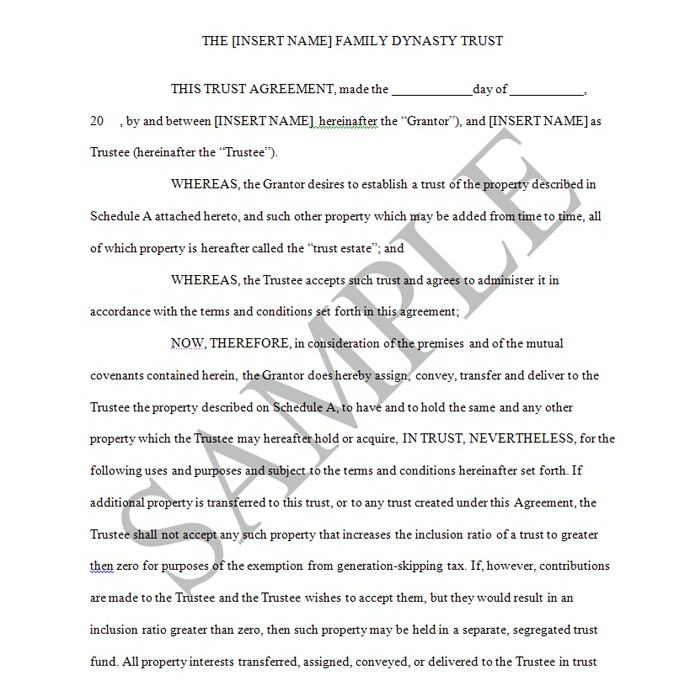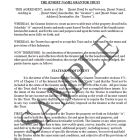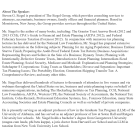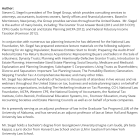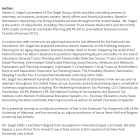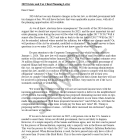Dynasty Trust (34 Pages)
This Form is a Dynasty Trust, intended to be created for the benefit of the children and more remote descendants of the Grantor, and designed to be a perpetual trust. Ideally, this trust is created in a State that has repealed the rule against perpetuities, thus allowing for the perpetual duration of the trust.
While the Dynasty Trust Form is not state specific, it is fully-editable. You can add state specific language as needed.
The Generation-Skipping Transfer Tax exclusion for 2024 is $13.61 million. Unlike the gift/estate tax exclusions, it is not portable to a surviving spouse. It is “use it or lose it”. Consider the creation of a multi-generational trust (the Dynasty Trust) creating a series of life estates designed to take advantage of a state’s rule against perpetuities and last as long as possible without having future transfer taxes imposed while providing the asset protection of a trust to future beneficiaries.
This Form is a Dynasty Trust, intended to be created for the benefit of the children and more remote descendants of the Grantor, and designed to be a perpetual trust. Ideally, this trust is created in a State that has repealed the rule against perpetuities, thus allowing for the perpetual duration of the trust.
The Dynasty Trust is an excellent tax planning vehicle as it permanently removes significant assets and the future appreciation on those assets from the transfer tax system. If no one “owns” these assets in the future, they will not be part of anyone’s taxable estate. In addition, the Dynasty Trust is an excellent asset protection vehicle. With no owner’s of the assets, creditors cannot make successful claims against the assets in these trusts, allowing them to be preserved, even against liability claims against the trust’s beneficiaries.
The trust is initially created for “primary beneficiaries” who are the Grantor’s children. They are given a limited power of appointment over the trust property in favor of their descendants. If this power is not exercised, the trust property passes to the descendants of the Grantor’s children, and so on. The trustee has discretion to pay a beneficiary income and principal from the trust, but is under no obligation to distribute any property at any time.
The trust is sensitive to the possible generation-skipping tax issues that can arise in this type of trust. (Section 3.1B). The trustee is given broad investment discretion. (Sections 3.1A and 3.3)
Since the trust is intended to last a very long time, the initial trustee is not likely to outlive the trust. Circumstances unforeseen at the inception of the trust may very well occur. For these reasons, the trust (section 4.5) appoints a “trust protector” – a person or institution to serve as the trust’s “watchdog” over what may need to be changed, amended, removed, etc. as time goes on.
Article 10 is also worth noting. The Grantor should consider how he/she may want to define such basic terms as “spouse” and “child”, given the potential long-term of the trust and evolving issues of social change, genetic engineering, etc. One can consider a “traditional” definition here, or allowance of either present or possible future definitions to be included in the trust.
While the Dynasty Trust Form is not state specific, it is fully-editable. You can add state specific language as needed.
Author:
Steven G. Siegel is president of The Siegel Group, a Morristown, New Jersey - based national consulting firm specializing in tax consulting, estate planning and advising family business owners and entrepreneurs. Mr. Siegel holds a BS from Georgetown University, a JD from Harvard Law School and an LLM in Taxation from New York University.
He is the author of several books, including: Planning for An Aging Population; Business Entities: Start to Finish; Taxation of Divorce and Separation; Income Taxation of Estates and Trusts, Preparing the Audit-Proof Federal Estate Tax Return, Putting It Together: Planning Estates for $5 million and Less, Family Business Succession Planning, Business Acquisitions: Representing Buyers and Sellers in the Sale of a Business; Dynasty Trusts; Planning with Intentionally-Defective Grantor Trusts; The Federal Gift Tax: A Comprehensive Analysis; Charitable Remainder Trusts, Grantor Trust Planning: QPRTs, GRATs and SCINs, The Estate Planning Course, The Retirement Planning Course, Retirement Distributions: Estate and Tax Planning Strategies; The Estate Administration Course, Tax Strategies for Closely-Held Businesses, and Tort Litigation Settlements: Tax and Financial Issues.
Mr. Siegel has lectured extensively throughout the United States on tax, business and estate planning topics on behalf of numerous organizations, including National Law Foundation, AICPA, CCH, National Tax Institute, National Society of Accountants, and many others. He has served as an adjunct professor of law at Seton Hall and Rutgers University law schools.
The Siegel Group provides consulting services to accountants, attorneys, financial planners and life insurance professionals to assist them with the tax, estate and business planning and compliance issues confronting their clients. Based in Morristown, New Jersey, the Group has provided services throughout the United States. The Siegel Group does not sell any products. It is an entirely fee-based organization.Contact the Siegel Group through its president, Steven G. Siegel, e-mail: [email protected]

